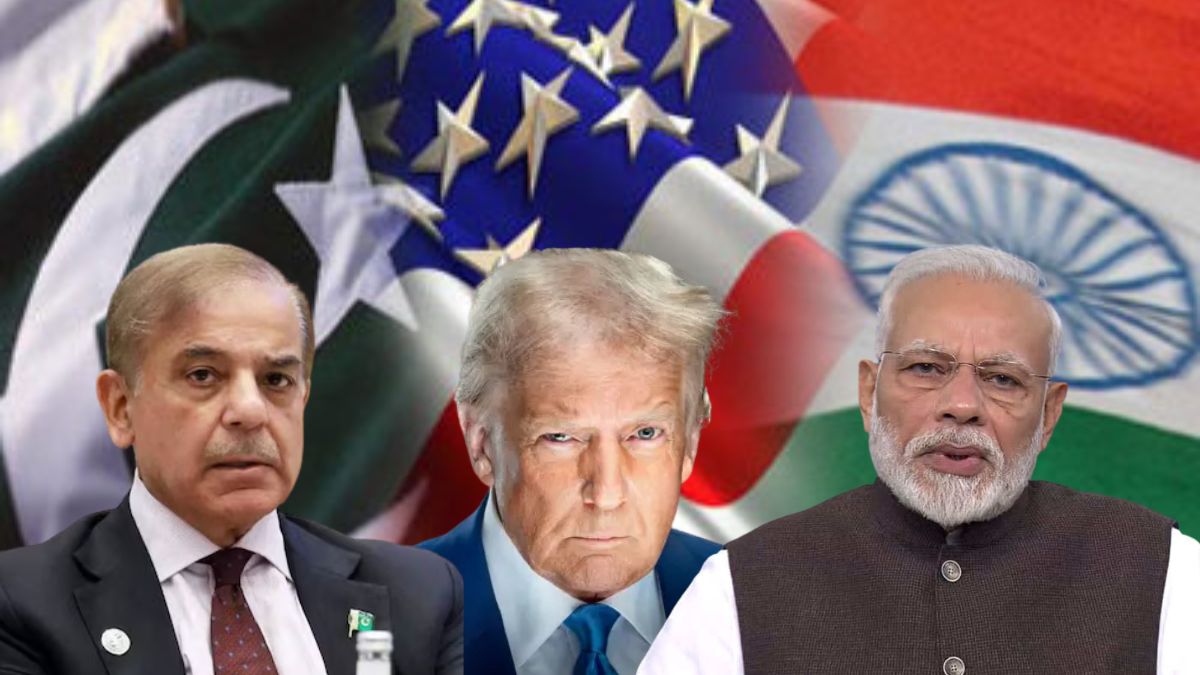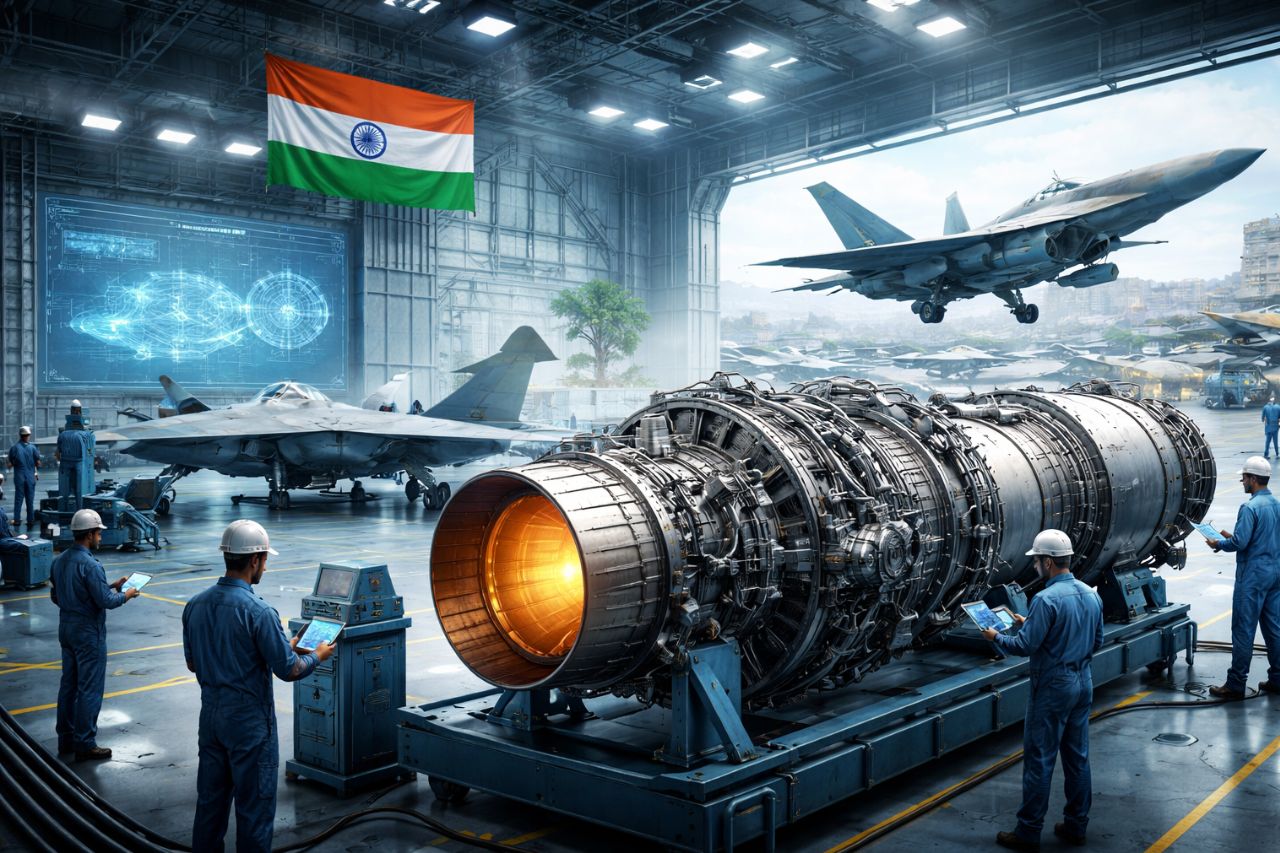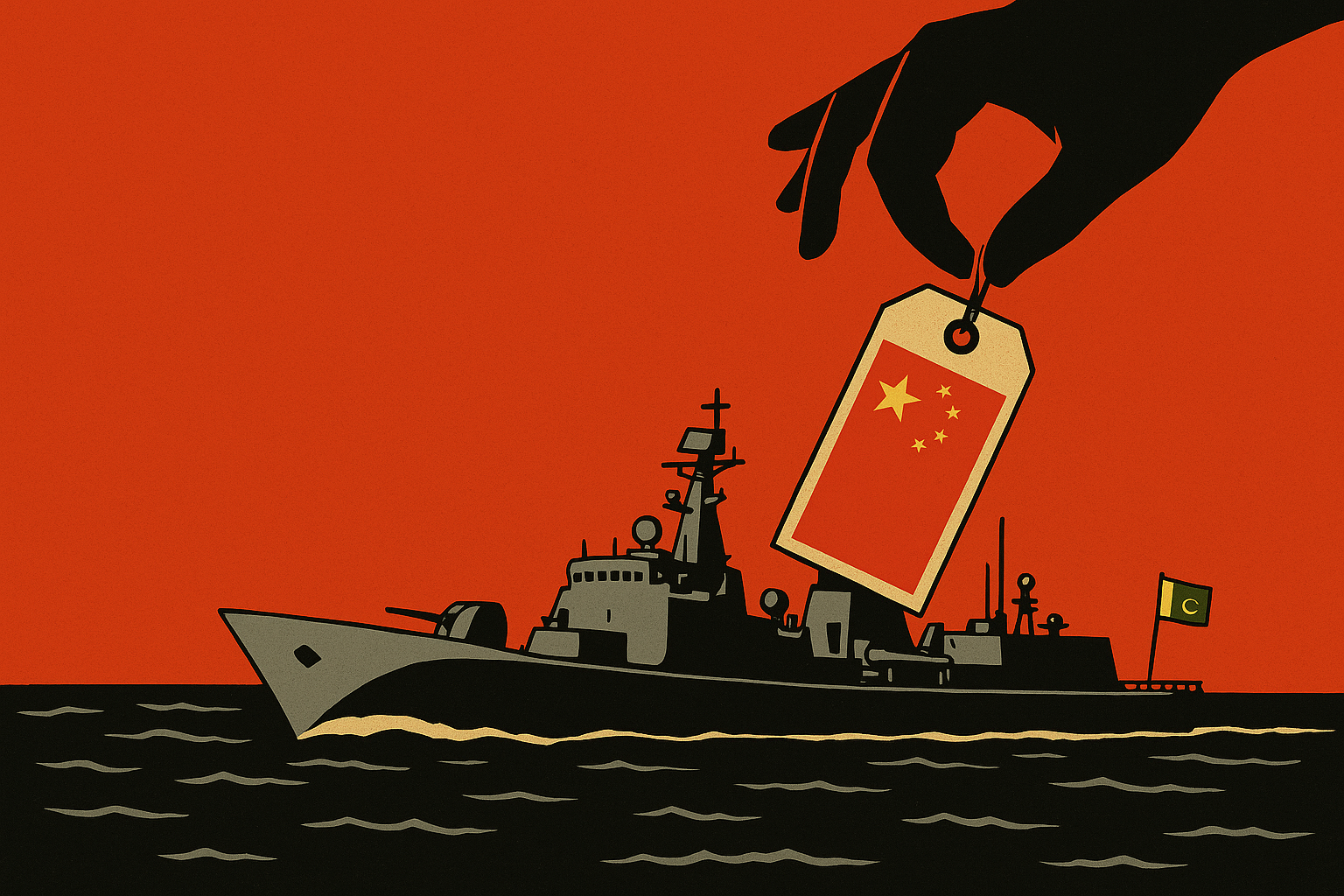Washington’s Steadfast Ally In A World Of Geopolitical Turbulence

From trade and technology to counterterrorism, India proves a dependable partner for Washington, unlike Pakistan’s uncertain path. Image courtesy: RNA
In a global environment characterised by significant geopolitical volatility, an increase in authoritarian regimes, and the emergence of multifaceted security challenges, the United States finds itself in need of allies that possess both resilience and principled stances.
India, renowned for its adherence to democratic governance, the rule of law, and an extensive reservoir of skilled human capital, presents Washington with a natural and dependable ally.
Conversely, Pakistan’s persistent political instability, military predominance, and historical entanglements with extremism have positioned it as a strategic yet unreliable partner.
As President Donald Trump articulated during his 2017 address at the White House alongside Prime Minister Narendra Modi, “The friendship between the United States and India is built on shared values, including our shared commitment to democracy…both American and Indian constitutions begin with the same three very beautiful words: ‘We the people.’”
This mutual dedication to democratic ideals underpins a partnership that spans across economic, defence, and diplomatic domains.
India: A Consistent Strategic Ally
India’s dependability as a collaborator is evidenced in both its strategic policies and practical engagements. From an economic perspective, the bilateral trade between the United States and India surpassed $190 billion in 2023, significantly overshadowing the trade between the United States and Pakistan, which remains under $10 billion.
Furthermore, India stands as a primary acquirer of US military equipment, thereby enhancing strategic interoperability and ensuring effective collaboration between the two nations in defence and security endeavors.
These economic and defence relationships have evolved over several decades and illustrate that India functions not solely as a transactional partner, but as a long-term strategic ally.
The historical development of U.S.–India relations proves this assertion:
Clinton Administration (1993–2001): Despite the strains that emerged following India’s nuclear tests in 1998, diplomatic engagement persisted. President Clinton’s visit in 2000 and the formation of the Indo-U.S. Science & Technology Forum indicated an acknowledgment of India as a constructive collaborator.
George W. Bush Administration (2001–2009): The pivotal US–India Civil Nuclear Deal (2005–2008) facilitated India’s access to nuclear commerce and technology. Cooperation in defence and energy intensified, and during the Mumbai terror attacks in 2008, the United States worked in close partnership with India, signifying a foundation of trust and common security objectives.
Obama Administration (2009–2017): Initiatives such as the US–India Strategic Dialogue and agreements related to defence technology, coupled with support for India’s aspiration for a permanent seat on the UN Security Council, underscored the increasing strategic alignment.
Trump Administration (2017–2021): Significant agreements, including COMCASA (2018) and BECA (2020), augmented military interoperability, while substantial defence contracts and investment initiatives bolstered economic and technological collaboration.
Biden Administration (2021–2025): Engagement through Quad Summits, partnerships in semiconductor technology and clean energy, as well as initiatives like the India–Middle East–Europe Economic Corridor (IMEC), have reinforced India’s status as a pivotal partner for the United States.
Trump Administration (2025 onward, second term): In February of the year 2025, President Trump, in conjunction with Prime Minister Modi, inaugurated the COMPACT initiative, a seminal partnership encompassing defence, advancements in artificial intelligence, nuclear reactor technology, and the facilitation of energy trade.
This initiative further enhanced strategic interoperability, intensified economic collaboration, and highlighted India’s significance as a dependable, long-term ally for the United States.
Throughout these administrative tenures, India has unwaveringly exhibited reliability in the realms of security, diplomacy, and economic collaboration, embodying shared democratic principles and a robust framework of the rule of law.
Pakistan: Tactical Utility and Persistent Distrust
In stark contrast, Pakistan’s utility to the US has historically been tactical. Its strategic location made it indispensable during the Cold War and for operations in Afghanistan, providing crucial logistical support, intelligence, and military access.
Yet Pakistan’s contributions have often been double-edged. While its intelligence agencies have occasionally facilitated US operations, they have simultaneously harbored extremist groups such as the Taliban and Lashkar-e-Taiba.
The discovery of Osama bin Laden in Abbottabad in 2011 exposed a profound breach of trust, revealing that elements within Pakistan’s military and intelligence apparatus allowed the al-Qaeda leader to reside undisturbed near a military academy.
More recently, the 2025 Pahalgam terror attack tragically illustrates ongoing risks. On April 22, 2025, 26 civilians were killed by terrorists affiliated with Pakistan-based groups. India responded swiftly with Operation Sindoor to neutralise the threat, but the incident underscores the persistent security challenges emanating from Pakistan-linked militancy.
While Pakistan occasionally facilitates US strategic objectives, particularly in counterterrorism, its inconsistent alignment with American values, chronic political instability, and military dominance make it a less dependable partner than India.
US–Pakistan trade, under $10 billion, pales in comparison to India’s $190 billion bilateral trade, reflecting structural limitations in governance, transparency, and economic reliability. Statements from US leaders, from Hillary Clinton to Donald Trump, have repeatedly highlighted this persistent mistrust.
Economic, Defence, and Diplomatic Implications
The divergence between India and Pakistan is pronounced across all facets of strategic partnership. India’s extensive and expanding trade and investment relationships with the United States facilitate innovation, promote job creation, and foster technological exchange.
In contrast, Pakistan’s restricted economic interactions, coupled with inherent governance challenges, provide minimal assurance regarding long-term reliability. India’s substantial acquisition of US military equipment and its involvement in defence agreements such as COMCASA and BECA significantly enhance interoperability.
Conversely, Pakistan’s sporadic cooperation, often entangled with covert support for non-state actors, erodes trust and diminishes strategic predictability. Also, India’s unwavering endorsement of US initiatives within multilateral frameworks, its constructive involvement in the Indo-Pacific, and its alignment with democratic principles bolster its reliability.
In contrast, Pakistan frequently engages in dual strategies, balancing its ties with the United States alongside relationships with China and regional militant factions, thereby constraining its diplomatic efficacy.
Strategic Clarity in a Trust-Deficit World
In an era characterised by geopolitical volatility and widespread trust deficits, the United States must eschew reliance on partners whose commitment is sporadic or contingent.
India presents a distinctly principled and stable alternative; a secular democracy distinguished by robust governance, a substantial, skilled labor force, and a consistent alignment with American values.
In contrast, Pakistan, despite its occasional tactical utility, manifests an inherent structural unpredictability that complicates long-term strategic planning.
The 2025 Pahalgam incident serves as a poignant reminder of the security threats associated with militancy linked to Pakistan, underscoring the notion that tactical utility cannot replace the necessity for reliability.
Conversely, India’s unwavering partnership across economic, defence, and diplomatic domains highlights the imperative for Washington to prioritise and enhance its relations with New Delhi.
As the United States contends with a landscape marked by ascending authoritarianism, emerging security challenges, and economic rivalry, a partnership with India anchored in mutual democratic values, adherence to the rule of law, and strategic interoperability presents an opportunity for stability, predictability, and lasting advantages.
In the evaluation of trust and enduring partnership, India transcends the status of a mere option; it emerges as a strategic necessity.







